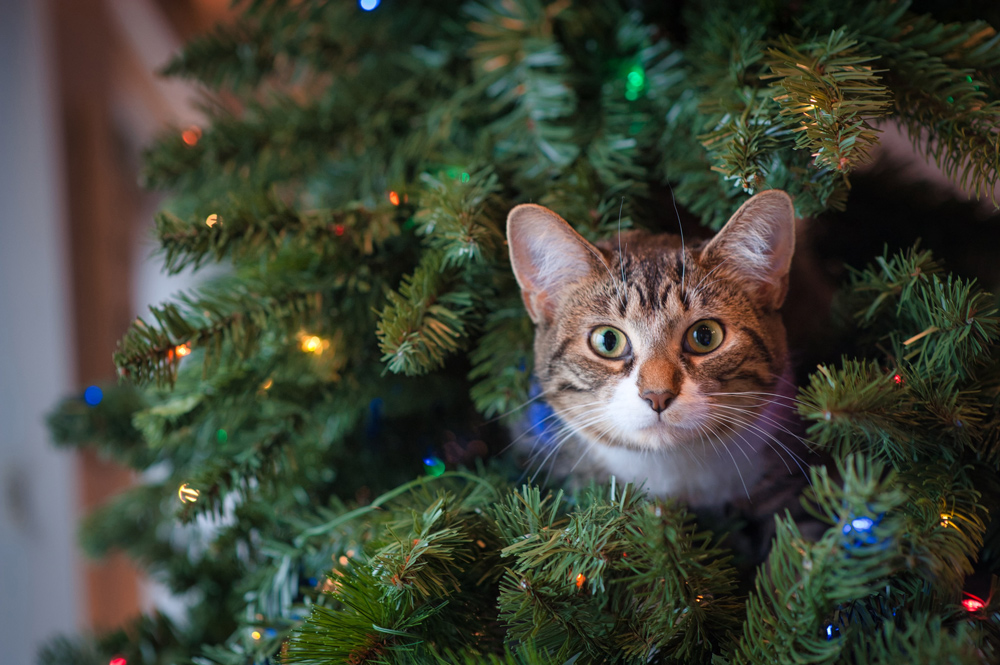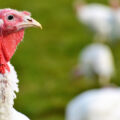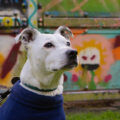Food to avoid
Christmas is about indulgence and enjoyment. We often eat foods and drinks that might not be part of our diet for the rest of the year.
And we all love to treat our pets. But a word of warning: if you find yourself preparing or enjoying Christmas dinner, a cooked breakfast or some other delicious meal over the festive season, don’t be tempted to give in to those puppy dog eyes or cute kitten purrs.
Some of the foods we enjoy can be harmful to our furry friends and so to avoid causing them discomfort and yourself a vet bill, try to keep these foods away from your pets:
Chocolate
Chocolate is extremely toxic to dogs. It contains a stimulant called theobromine (dark chocolate has the highest content of this) which is toxic and can cause kidney failure.
The darker the chocolate the more serious the issue.
According to The Blue Cross, if you think your dog has eaten more than 3.5g of plain or dark chocolate or 14g of milk chocolate, they should be taken to the vet as soon as possible.
Macadamia nuts
All nuts should be avoided but macadamia nuts are the most toxic. If ingested they can potentially be fatal. Nuts can cause seizures and neurological problems.
Pigs in blankets
There may not be a dog on the planet, or perhaps a cat, that would turn away such a tasty delicacy, this is another Christmas day treat that contains too much salt and fat for your pet.
Grapes, raisins and sultanas
A trio of toxic treats, all of which can cause fatal kidney failure, particularly for pets with underlying health problems.
As such, keep Christmas pudding and mince pies well out of the way.
Caffeine and fizzy drinks
Coffee beans, teabags and fizzy drinks should be kept out of reach as they can cause rapid breathing and heart palpitations.
Dairy products
Most pets find it difficult to digest the lactose in milk and cheese, so it’s a good idea to avoid these where possible.
Onions, garlic and chives
If fed to your pet raw, cooked or dehydrated they can affect their red blood cells and cause anaemia. Onions are particularly bad for a dog’s digestion.
Stuffing
While your pets would probably happily eat anything you offer them, stuffing should be kept away from them as it contains onions, garlic and herbs that may also cause upset stomachs.
Gravy
It might be tempting to offer gravy to your pets if you do treat them with safe foods, but you really shouldn’t.
It will be far too salty and fatty for them and can cause stomach upset, and digestive problems like sickness and diarrhoea.
Raw ingredients
Although raw dog food is increasingly popular, try to avoid feeding pets the things we cook with, such as fat trimmings, raw meat, raw eggs and raw fish.
These can cause salmonella or an unsettled stomach. With cats in particular, too much fat can cause pancreatitis.
Xylitol artificial sweetener
Found in lots of sugar-free sweets and cakes, this can trigger sudden releases of insulin that can cause seizures and damage to the liver.
Skin and bones
Turkey skin, in fact most cooked bird skin, is much too fatty for your dog, while bones can cause internal damage.
If you suspect your pet of ingesting any of the above contact your vet immediately for their advice. Prompt action could be lifesaving.
What can they eat?
The good news is, your cats and dogs can be treated to a little skin and boneless white meat, like Christmas turkey and for dogs a small side of vegetables – green beans, Brussels sprouts, parsnips, peas and swede are fine in moderation (think what sprouts do to you) .
And if you decide to plate that up for your dog, you can safely add unsweetened cranberry sauce, as long as it has no added nuts and it is used sparingly.
Unsalted and unbuttered mashed or boiled potatoes can be given in small amounts as starch can be difficult to digest, but avoid roast potatoes as they will contain too much fat.
Other things to avoid
There are a number of seasonal plants that you should keep away from pets, such as poinsettias.
The berries and leaves of holly, ivy and mistletoe are all poisonous to dogs and can cause stomach upsets. If you have these in your home, make sure they are in a place where your pets are unable to reach them and always pick up any that fall on the floor.
Christmas trees are a constant temptation to cats and dogs. Although they are not toxic, if the sharp needles are ingested they can cause internal damage.
Talking of Christmas trees
Cats love to play with decorations so try and avoid placing them on the very lowest branches. If you can, place the tree in an area where pets can’t jump onto the branches.
Secure the tree in a wide-based pot or holder to avoid toppling. Using tin foil around the base will deter cats from climbing or clawing the tree.
Orange peel or citrus spray will also deter cats from causing too much mischief. Of course, anything dangly will be like a red flag to a bull.









Leave a Reply